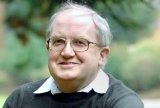 It’s just over a year ago that an essay called “Tolerating Uncertainty” appeared in the NEJM, headed by a quotation from Keats: “At once it struck me what quality went to form a Man of Achievement . . . when a man is capable of being in uncertainties, mysteries, doubts, without any irritable reaching after fact and reason.” I much admired this piece by Arabella Simpkin and Richard Schwartzstein, but felt slightly uneasy about the Keats quotation. Did it really help their cause?
It’s just over a year ago that an essay called “Tolerating Uncertainty” appeared in the NEJM, headed by a quotation from Keats: “At once it struck me what quality went to form a Man of Achievement . . . when a man is capable of being in uncertainties, mysteries, doubts, without any irritable reaching after fact and reason.” I much admired this piece by Arabella Simpkin and Richard Schwartzstein, but felt slightly uneasy about the Keats quotation. Did it really help their cause?
The context of Keats’ famous letter was that he had just accidentally met with Samuel Coleridge on Hampstead Heath. Keats had been persuaded to train in medicine and surgery as a means of guaranteeing an income. He was astute and talented in both, but had deliberately decided to become a poet. Among his contemporaries, Coleridge was his chief poetic model, but had produced little poetry of note for about ten years. Keats’ ambitions stretched much further. The Man of Achievement he alludes to here is Shakespeare, a poet who was unknowable and illimitable. The complete quotation runs, “At once it struck me what quality went to form a Man of Achievement, especially in Literature, and which Shakespeare possessed so enormously—I mean Negative Capability, that is, when a man is capable of being in uncertainties, mysteries, doubts, without any irritable searching after fact and reason.”
The full quotation appears at the head of another short essay in an American journal, which doesn’t cite the earlier NEJM piece. Again, I don’t see that it quite fits into the discussion of medicine which follows. Keats was 22 when he wrote his letter, and later in it he suggests a diametric contrast between Coleridge, who sought a universal metaphysics of knowledge, and Shakespeare, who created a series of imaginative universes which are beyond the circumference of thought.
The irony here is that coming 150 years sooner, irritable searching for the facts and reasons of medicine would have spared Keats an early death from tuberculosis. There is no sense in undervaluing the achievements of “reductionist” science. The discovery of the Koch bacillus, and the means of killing it, might have given literature the full works of a second Shakespeare, rather than just a few poems of exquisite beauty and fragments of limitless suggestion. Yet it is true that the triumph of mechanistic science makes the understanding of uncertainty in medicine more and not less important.
This art of medicine is in many ways more difficult than the science, because it forces us to examine ourselves critically in every encounter. It is the shared application of that science with individuals through the imperfect medium of our own understanding, intelligence, and empathy. And it is also the place where uncertainty intrudes. It’s all very well if our patient John Keats has pulmonary tuberculosis: easy to diagnose, simple to treat, cure guaranteed. But most of the diseases of this century are difficult and complex. Modern Mr Keats has a mixture of risk states and symptoms. Diagnosis and therapy are probabilistic, and therefore uncertain. Both patients and doctors don’t like that, and are therefore ready targets for false promises of certainty.
This is one major theme of a longer piece, “Putting the Patient Back Together: Social Medicine, Network Medicine, and the Limits of Reductionism” in the current NEJM. Well worth reading. Here’s a tempter: “One disappointment of the postgenomic age is how little the Human Genome Project has taught us to date about human disease.”
